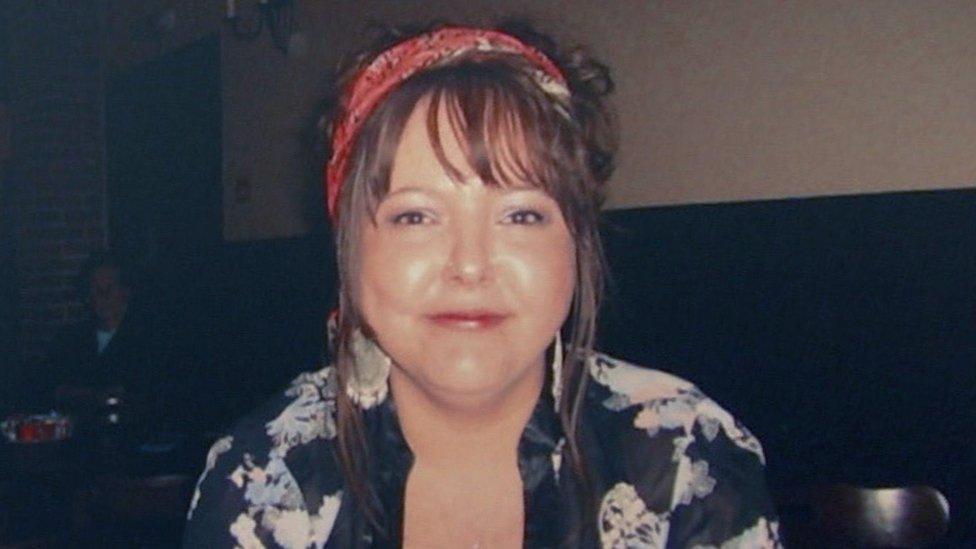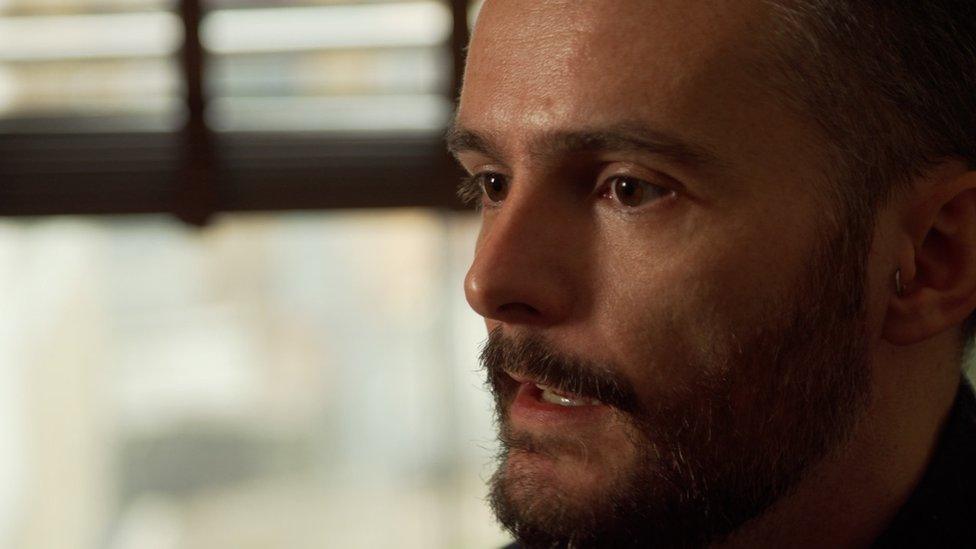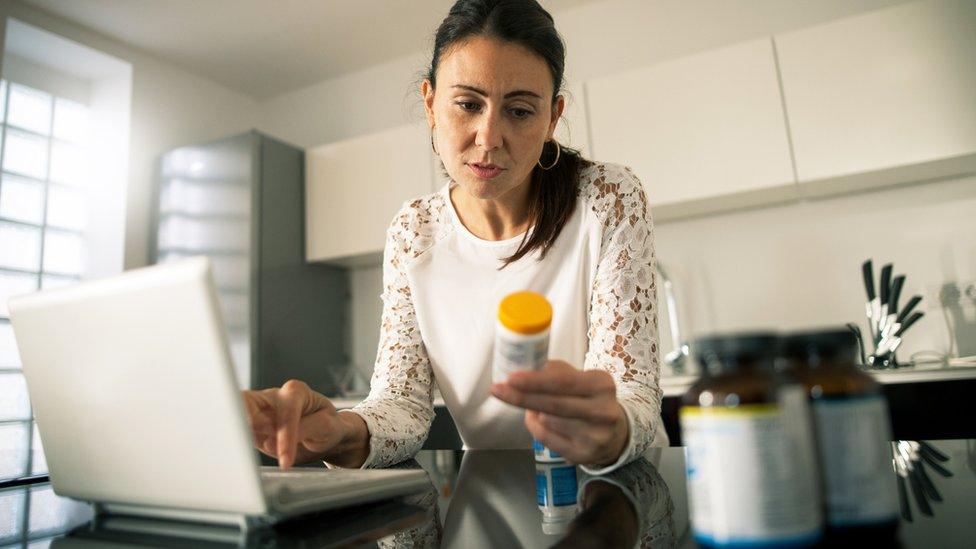Clampdown planned for British online pharmacies
- Published

Debbie Headspeath bought codeine from online pharmacies
New rules to keep people safe when buying medications from online pharmacies have been described as a "big step forward" by Britain's pharmacy regulator.
It comes after patients and relatives raised concerns, as well as an investigation by BBC Panorama.
The General Pharmaceutical Council has issued guidance for providers.
It will help regulate access to addictive medication, such as strong painkillers.
Duncan Rudkin, the General Pharmaceutical Council's chief executive, told the BBC that he hoped the new rules would "make an important difference to improving standards of safety and care for patients".
The way some online pharmacy websites operate will change, and more checks will be done on medications.
Extra safety measures include:
Sites cannot be set up in a way that allows patients to choose a prescription-only medication before an online consultation with a healthcare professional
More safeguards will be introduced for certain medications, including antibiotics and medicines that need ongoing monitoring or management
For medications that are liable to abuse, overuse or misuse, or when there is a risk of addiction, the prescriber needs to contact the GP in advance of issuing the prescription (and they have confirmed it is appropriate for the patient and the appropriate monitoring is in place)
Online pharmacy websites should be clear about the identity and/or location of the pharmacies issuing prescriptions
Mr Rudkin said the Panorama programme "was really helpful in shining a light on a really important area of public safety".
It revealed how easy it was for patients to buy drugs online that their own GPs would be highly unlikely to prescribe.
Patients contacted Panorama after the programme.

Kevin Duggan said his sister had been exploited
Debbie Headspeath, 41, died in 2017 in Ipswich. Her brother, Kevin Duggan told the BBC that after her death, they found on bank statements that she had bought codeine from 18 online UK pharmacies.
Debbie had started a new job with war veterans and, despite waking up with stomach pains, she did not want to miss work.
"She put her jacket and bag on and then collapsed by the front door. She wasn't found until several hours later when her partner came home from work and it was too late and she had gone. She died."
Debbie had been prescribed the opiate-based painkiller dihydrocodeine by her family doctor in 2008 after developing back pain.
After several years, it was recognised she was addicted. The family doctor tried to wean her off, but she was able to secretly buy medication, prescribed by doctors and dispensed by UK pharmacies, without her GP being informed by the companies.
Kevin said: "There's no justification for what they do, which is exploiting people with an addiction. I would like to invite the companies to try and justify their actions to my mum.
"To look my mum in the eyes and explain why they allowed this to happen."
The inquest, which will decide the cause of death, is next month, but her brother told the BBC he felt the codeine had contributed to her death.
Son born addicted
Another relative of a patient contacted the BBC. His wife had developed back pain after the birth of their first child in 2014.
In 2016, he realised she was addicted to dihydrocodeine - the same drug prescribed to Debbie - and asked her GP to help her get off them.
In 2017, she found out she was pregnant again.
"I think when she fell pregnant she was taking 20 pills a day secretly.
"Then I think she realised, and then the midwife weaned her down to eight to 10 pills a day. And as a consequence of that, you know, my son was born addicted to opiates.
"To see your child in such distress, to see jerky movements; the shaking. It's something that I wouldn't want anybody to ever go through."
His wife managed to come off the pills, but she has recently relapsed. He says that, so far, the medications have cost them nearly £25,000.
Mr Rudkin told the BBC: "I really want to acknowledge the pain that some families have experienced that's been associated in some cases with online pharmacies.
"It's really important that the stories help to change regulations. We've taken steps to address the risk."
You can watch Panorama: Online Doctors Uncovered on BBC iPlayer.
Related topics
- Published6 August 2018
